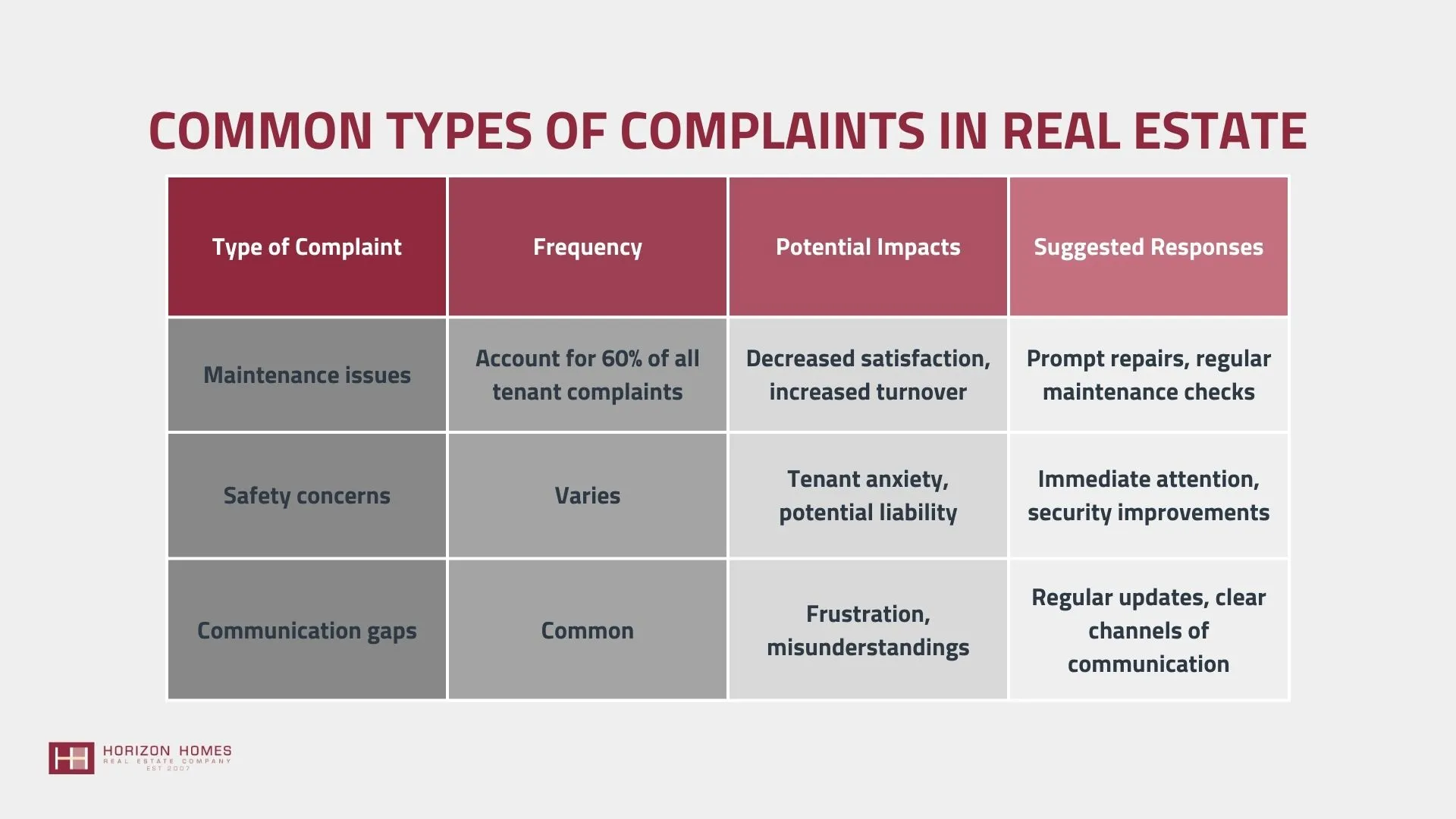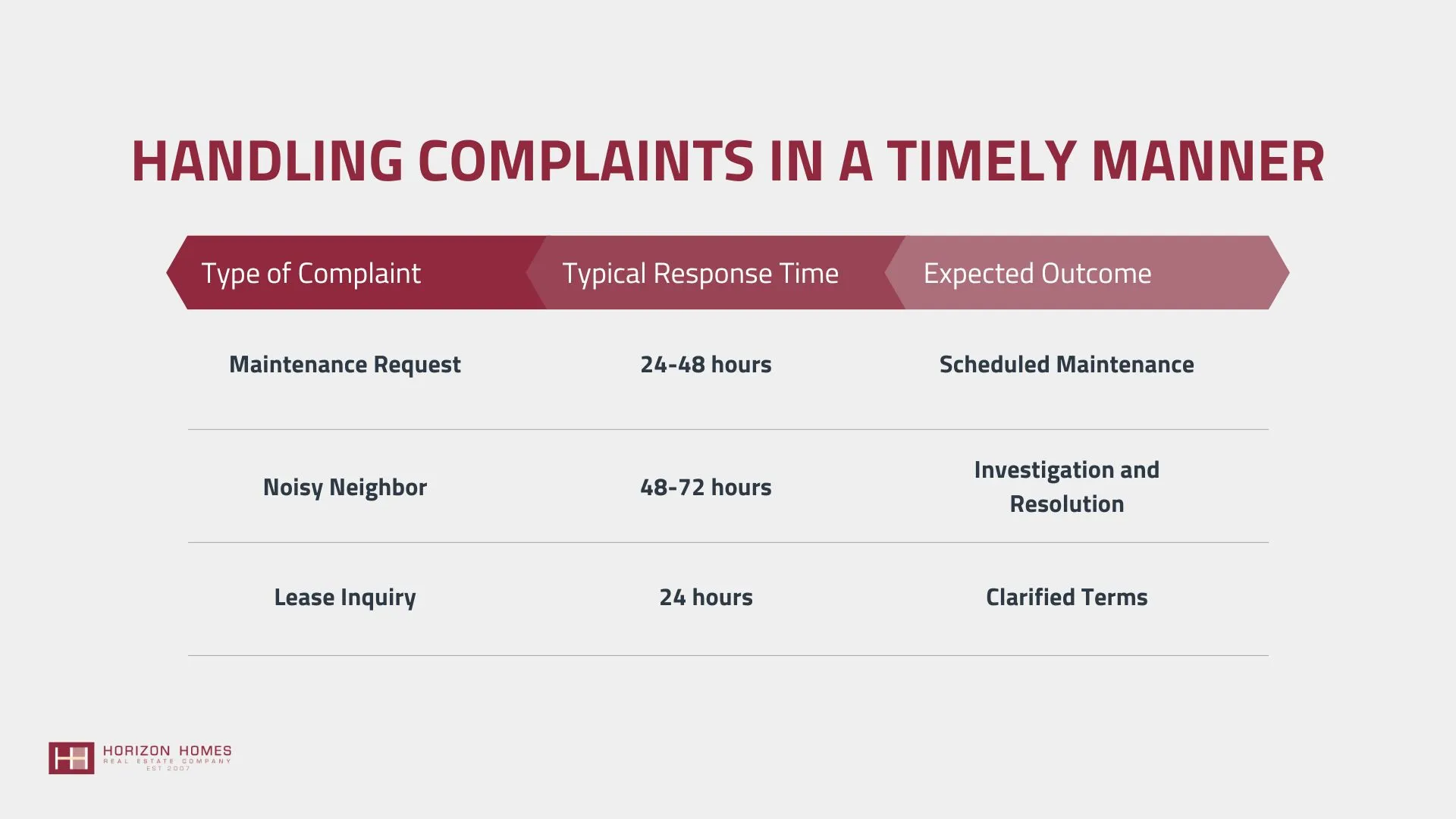Tenant complaints are an inevitable aspect of property management, and the manner in which you handle these concerns can significantly influence tenant satisfaction and retention. Studies show that properties that effectively address complaints see a 15% lower turnover rate, and 70% of tenants remain satisfied when their complaints are handled promptly.
This article delves into the common types of issues that may arise in real estate, emphasizing the importance of effective communication and the necessity of promptly addressing complaints. It discusses strategies for collaborating with residents to find solutions and implementing changes to prevent future issues.
Maintaining a positive landlord-tenant relationship is essential, and the following insights are designed to assist you in navigating these challenges effectively.
Key Takeaways:
- Addressing tenant complaints is crucial for maintaining satisfaction and retention.
- Effective communication and timely handling of concerns can prevent future issues.
- Collaborating with residents for solutions and nurturing a positive relationship is key in resolving issues.
Understanding Tenant Complaints
Understanding tenant complaints is crucial for property managers and landlords, as it reflects the quality of property management and significantly affects tenant experience and satisfaction. Documenting complaints is an essential step in this process.
Common tenant concerns may include:
- Maintenance issues
- Safety concerns
- Communication gaps
These issues can lead to conflicts. By actively acknowledging these matters with empathetic communication and implementing effective complaint management strategies, property owners can foster positive relationships with tenants, ultimately enhancing tenant retention in rental properties. Utilizing maintenance software like Buildium or AppFolio can also streamline the resolution of maintenance requests.


In the field of real estate, common tenant complaints typically focus on maintenance issues, including aging appliances, pest infestations, utility costs, and safety concerns that require immediate attention. Property managers must address these to maintain service quality.
Neglecting minor maintenance complaints can lead to more significant issues. For example, a leaky faucet can cause mold growth if ignored. Similarly, pest problems can create an uncomfortable living situation, affecting tenant health.
Safety concerns, such as broken door locks, must be resolved promptly to ensure tenant well-being and foster trust.
Importance of Addressing Tenant Complaints
Research indicates that properties with a 24-hour complaint response time see a 15% lower turnover rate. Providing timely responses ensures that tenants feel valued and supported, fostering an environment conducive to conflict resolution and helping maintain positive landlord-tenant relationships.
Impact on Tenant Satisfaction and Retention
Delays in addressing complaints can erode tenant trust, leading to higher turnover rates. Effective communication, including tenant portals, can facilitate resolution, enhance engagement, and build long-term trust.
When maintenance issues, such as pest control, are handled efficiently, tenants are more likely to renew leases, contributing to property stability.
Effective Communication with Tenants
Actionable communication strategies include:
- Setting regular check-ins to discuss concerns.
- Utilizing digital platforms for timely updates.
- Encouraging feedback through surveys to improve service quality.
Proactive complaint management leads to higher tenant retention and satisfaction.
Ensuring transparency about response times fosters trust and prevents conflicts. Utilizing tenant portals can further enhance complaint resolution.

Preventing Future Complaints
Proactive property management strategies can prevent recurring complaints. Measures such as regular inspections, scheduled maintenance, and use of maintenance software help ensure a seamless tenant experience.
Implementing tenant feedback loops allows property managers to refine policies and service quality.
Key improvements include:
- Upgrading security systems.
- Implementing clear noise policies.
- Establishing transparent utility billing practices.
Maintaining a Positive Relationship with Tenants
Maintaining good landlord-tenant relationships improves tenant satisfaction. Legal consultation and identity protection services can further strengthen this relationship.
Key Benefits:
- Enhanced tenant satisfaction
- Increased trust
- Improved conflict resolution
Active engagement fosters a sense of community, reducing rental disputes and strengthening tenant loyalty.

Conclusion
Tenant complaint management is a cornerstone of successful property management. By fostering clear communication, utilizing technology, and prioritizing timely responses, property managers can enhance tenant satisfaction and retention.
Implementing structured feedback systems, like surveys and suggestion boxes, can help identify service gaps and build trust. Utilizing resident communication tools streamlines interactions and enhances transparency, leading to long-term tenant retention and improved property management strategies.
By addressing complaints efficiently, property managers can create a thriving, satisfied rental community and establish a more stable and profitable real estate investment.
Frequently Asked Questions
Active listening, timely response, mediation assistance, and clear communication.
Ignoring complaints can escalate conflicts and increase tenant turnover.
Use empathetic communication, acknowledge concerns, and provide clear resolutions.
Maintenance issues, pest problems, noise disturbances, safety concerns, and lease conflicts.
Yes, a structured complaint management system ensures fair and timely resolutions.
Maintain professionalism, document complaints, and seek mediation if necessary.


